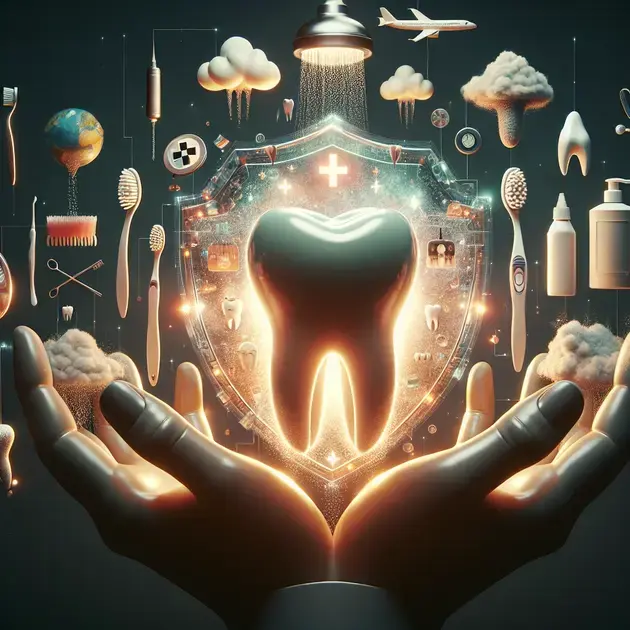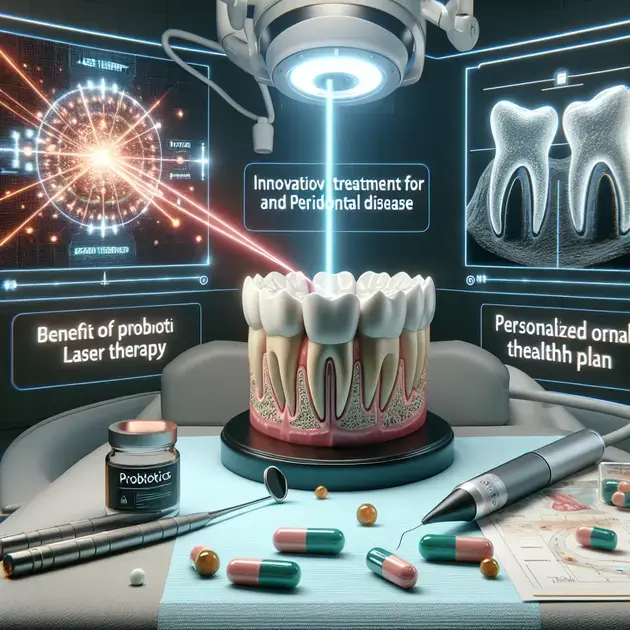When it comes to treating periodontitis, finding the most effective medication is crucial. Understanding the best medication for periodontitis can significantly impact the success of the treatment and the overall health of your gums.
With advances in dental research and technology, there are now more options available than ever before. This comprehensive guide will delve into the various medications for periodontitis, their benefits, potential side effects, and how to determine the best course of action for your oral health.

Understanding the Importance of Medication for Periodontitis
Periodontitis is a serious gum infection that damages the soft tissue and destroys the bone that supports your teeth. Proper medication plays a crucial role in the treatment of this condition, helping to control the infection, reduce inflammation, and prevent further damage to your gums and teeth.
One essential step in utilizing medication for periodontitis is consulting with a dental professional. A periodontist or dentist can evaluate the extent of your condition and recommend the most suitable medications for your specific case. They may prescribe antibiotics to combat the bacterial infection causing periodontitis or recommend antimicrobial mouth rinses to reduce plaque and control the infection.
When it comes to the importance of medication for periodontitis, it is vital to follow your healthcare provider’s instructions diligently. This includes taking the prescribed medications as directed, maintaining good oral hygiene practices, and attending regular dental check-ups to monitor your progress.
For further information on the importance of medication for periodontitis and specific treatment guidelines, websites like the American Academy of Periodontology (perio.org) offer valuable resources and insights. These platforms provide detailed explanations on the role of medication in managing periodontal disease and its impact on overall oral health.
By understanding the significance of medication for periodontitis and actively engaging in your treatment plan, you can take proactive steps towards improving your gum health and preserving your smile.
Exploring Different Types of Medications for Periodontitis
Various medications are utilized in the treatment of periodontitis, each serving a specific purpose in combating the infection and promoting gum health. One common type of medication is antibiotics, which are prescribed to target and eliminate the bacteria causing gum disease.
In addition to antibiotics, antimicrobial mouth rinses are often recommended to reduce plaque and bacteria in the mouth, helping to control the progression of periodontitis. Anti-inflammatory drugs may also be used to alleviate swelling and discomfort associated with the infection.
Exploring the different types of medications for periodontitis involves understanding how each medication works and its potential side effects. It is essential to discuss any concerns or allergies with your healthcare provider to ensure the prescribed medication is safe and effective for you.
Websites like the Centers for Disease Control and Prevention (CDC) provide valuable information on the various medications used to treat periodontitis, including guidelines on dosage, administration, and potential interactions with other drugs.
By exploring the diverse range of medications available for periodontitis and consulting with your dental professional, you can determine the most suitable treatment plan for your oral health needs.
Factors to Consider When Choosing the Best Medication for Periodontitis
When selecting the best medication for periodontitis, several factors should be taken into account to ensure effective treatment and optimal outcomes. One crucial consideration is the severity of your gum disease, as this will influence the type and dosage of medication required.
Another factor to consider is your medical history and any potential allergies or sensitivities to certain medications. It is essential to inform your healthcare provider of any existing health conditions or medications you are currently taking to avoid adverse reactions.
Cost and accessibility are also important factors when choosing the best medication for periodontitis. Some medications may be more affordable or covered by insurance, while others may require prior authorization or special considerations.
Discussing these factors with your periodontist or dentist can help you make an informed decision regarding the most suitable medication for your individual needs. Websites like the Mayo Clinic offer insights into the factors to consider when selecting medication for periodontitis, providing guidance on making informed choices for your oral health.
By carefully evaluating these factors and working closely with your healthcare provider, you can choose the best medication for periodontitis that aligns with your treatment goals and promotes long-term gum health.

Exploring New Approaches to Managing Advanced Periodontal Disease
Managing advanced periodontal disease is crucial to maintaining good oral health. Traditional treatments such as scaling and root planing may not always be sufficient in tackling advanced stages of periodontal disease. In recent years, new approaches have emerged to provide more effective management of advanced cases.
One innovative approach is laser therapy, which can target and eliminate bacteria and infected tissue more precisely than traditional methods. This minimally invasive technique promotes faster healing and reduces the risk of infection. Additionally, laser therapy can stimulate gum tissue regeneration, leading to better overall oral health outcomes.
Another new approach involves the use of probiotics in treating periodontal disease. Probiotics are beneficial bacteria that can help restore the natural balance of microorganisms in the mouth, reducing inflammation and fighting harmful bacteria. Incorporating probiotics into traditional periodontal treatments can enhance their effectiveness and support long-term oral health.
In addition to these new treatments, personalized oral health plans tailored to each patient’s specific needs are becoming more common. By considering factors such as genetics, lifestyle habits, and overall health, dental professionals can create customized strategies to manage advanced periodontal disease effectively. This individualized approach can lead to better outcomes and improved long-term oral health.
Overall, exploring new approaches to managing advanced periodontal disease can offer patients more effective treatment options and better outcomes. By staying informed about the latest advancements in periodontal care, both patients and dental professionals can work together to combat advanced cases of periodontal disease and preserve oral health.
The Connection Between Oral Health and Overall Well-being
The link between oral health and overall well-being is increasingly recognized in the field of dentistry. Maintaining good oral health is not only essential for a healthy smile but also plays a significant role in supporting overall physical and mental wellness. Understanding this connection can help individuals prioritize oral care as part of their holistic health routine.
Poor oral health, such as untreated periodontal disease or cavities, can contribute to various systemic health issues. Bacteria from the mouth can enter the bloodstream and affect other parts of the body, increasing the risk of conditions such as heart disease, diabetes, and respiratory infections. By taking care of their oral health, individuals can reduce the likelihood of developing these serious health problems.
Furthermore, the state of one’s oral health can impact their quality of life and self-esteem. Chronic oral conditions can cause pain, discomfort, and difficulty eating, which can affect an individual’s ability to enjoy daily activities and maintain a nutritious diet. By prioritizing preventive dental care and addressing oral health issues promptly, individuals can improve their overall well-being and quality of life.
Regular dental check-ups and cleanings are essential not only for maintaining oral health but also for monitoring any signs of potential systemic issues. Dentists are trained to detect early warning signs of health problems during routine examinations, making dental visits a crucial aspect of preventive care. By staying proactive about oral health, individuals can take proactive measures to safeguard their overall well-being.
In conclusion, the connection between oral health and overall well-being underscores the importance of prioritizing oral care as a key component of a healthy lifestyle. By recognizing the impact of oral health on systemic wellness and taking proactive steps to maintain good oral hygiene, individuals can enhance their overall health and well-being for the long term.
Maximizing the Impact of Preventive Dental Care
Preventive dental care is essential for maintaining optimal oral health and preventing the development of common dental issues such as cavities, gum disease, and tooth decay. By incorporating preventive measures into their oral hygiene routine, individuals can maximize the impact of dental care and enjoy a healthy smile for years to come.
One of the key components of preventive dental care is regular brushing and flossing. Proper oral hygiene practices help remove plaque and bacteria from the teeth and gums, preventing the buildup of harmful substances that can lead to cavities and gum disease. Dentists recommend brushing at least twice a day and flossing daily to maintain optimal oral health.
In addition to daily oral hygiene practices, routine dental check-ups are crucial for detecting and addressing any potential issues early on. Dentists can perform thorough examinations, cleanings, and screenings to identify signs of dental problems and provide timely interventions. By visiting the dentist regularly, individuals can stay on top of their oral health and prevent minor issues from escalating into more serious conditions.
Another important aspect of preventive dental care is maintaining a healthy diet and lifestyle. Consuming sugary and acidic foods and beverages in moderation can help reduce the risk of cavities and enamel erosion. Additionally, avoiding tobacco products and practicing good oral habits can contribute to overall oral health and well-being.
Furthermore, preventive treatments such as dental sealants and fluoride applications can provide additional protection against dental decay and strengthen the teeth. These preventive measures are especially beneficial for children and individuals at higher risk of developing oral health issues. By investing in preventive treatments, individuals can significantly reduce the likelihood of developing dental problems in the future.
In summary, maximizing the impact of preventive dental care involves a combination of daily oral hygiene practices, regular dental check-ups, and healthy lifestyle choices. By prioritizing preventive measures and working closely with dental professionals, individuals can proactively maintain their oral health and enjoy the benefits of a healthy and beautiful smile.
**
Conclusion
**
Exploring new approaches to managing advanced periodontal disease is essential for improving oral health outcomes. Traditional treatments may not always be sufficient in tackling advanced stages of periodontal disease, making innovative techniques like laser therapy and probiotics crucial for more effective management. Laser therapy, with its precise targeting of bacteria and infected tissue, promotes faster healing and gum tissue regeneration, leading to better overall oral health.
Furthermore, incorporating probiotics into periodontal treatments can restore the natural balance of microorganisms in the mouth, reducing inflammation and enhancing long-term oral health. Personalized oral health plans tailored to individual needs are also gaining importance, allowing dental professionals to create customized strategies for managing advanced periodontal disease effectively, resulting in better outcomes and improved long-term oral health.
The connection between oral health and overall well-being highlights the significance of prioritizing oral care as part of a healthy lifestyle. Addressing untreated oral conditions like periodontal disease and cavities can prevent systemic health issues, such as heart disease and diabetes. By prioritizing preventive dental care, individuals can improve their quality of life, self-esteem, and overall well-being, ensuring they can enjoy daily activities and maintain a nutritious diet.



